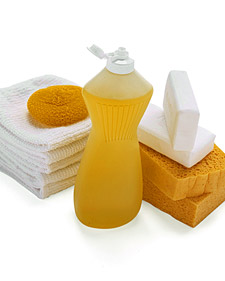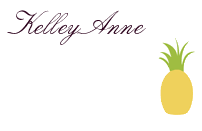When you begin your Spring Cleaning, think about:
Healthy Cleaning Products
Most conventional cleaning products are inexpensive and easy to use. Unfortunately, many contain chemical compounds that are dangerous to breathe and touch and that can contaminate soil and water once washed down the drain. But with a little knowledge and some willingness to experiment, you can find less-toxic alternatives that work for everyday cleaning and even tougher jobs.
It's also worth rethinking your idea of what "clean" means. Many of us associate fragrance or bleach with sanitation because we're so used to the odor of the chemicals in commercial cleaning agents. Yet a truly clean house smells air-fresh, not odor-laden. And be aware that many manufacturers of "unscented" cleaners use chemical fragrance to mask the scent of the active ingredients in their products. So while your laundry detergent might not smell like roses, it may be scented to smell unscented.
When it comes to germs, anyone who's taken high-school biology knows that microorganisms, including beneficial ones that live inside us, are omnipresent. Yes, we want to eliminate E. coli from countertops and bathroom fixtures; yes, we want to minimize the spread of viruses. But studies have shown that unless someone in your home is severely immunosuppressed, all you need is soap, warm water, and a little scrubbing to keep your family members from getting an infectious disease.
Even homemade or gentle store-bought cleaning products can be irritating, so always wear rubber gloves while cleaning and ventilate the area whenever possible. Also, test a new cleaner in a discreet spot before using on a big area. Label homemade cleaning solutions clearly and keep them out of the reach of children.
Curb your instinct to reach for the most powerful cleaning product; for example, don't use a bleach-laden wipe on the kitchen countertop if a clean, soapy sponge will do. When working with any cleaning product, use only what you must to get the job done, and not a drop more. Don't drown that spot in stain-removing solution. Don't saturate the sponge with dishwashing liquid, either. If you find yourself going through bottle after bottle of cleaner, consider cleaning less frequently. You don't need to overclean to maintain your family's health. In fact, you might keep everyone healthier by cleaning weekly and spot-cleaning dirtier areas as needed. If you have a task that requires you to use a particularly toxic product, wear protective clothing (rubber gloves and a mask), and ventilate the area well. When you're finished, follow the manufacturers disposal guidelines, or keep the product in the basement or garage until your community's hazardous waste disposal day.
Commit to using less-toxic cleaners, which you'll find at health-food stores, many grocery stores, or online. Unfortunately, there is no government equivalent of "organic" in the world of cleaning products. Read labels to be sure of what you're buying (especially if you're prone to allergies). Look for manufacturers that spell out everything clearly on the label. A long list of ingredients in small print is often an indicator that the manufacturer is using more chemicals you're better off avoiding. Experiment with different brands to see which ones work for you. Even less-toxic cleaners can be unsafe and aggravate allergies and chemical sensitivities. Downplay these risks by opening a window (or, at the very least, running a fan) while you're working with cleaning products.
Use homemade cleaners whenever possible. Water is often effective on its own. Cold water is all you need to rinse off bowls used for flour when baking, or to wipe up many spills. Likewise, warm water is adequate for cleaning most floors, and hot water works for a sink or a toilet seat. When more cleaning power is needed, look in the kitchen. Baking soda and salt are mild abrasives. Distilled white vinegar and lemon juice are acidic, so they can neutralize alkaline substances such as soap scum; they are also gentle bleaches. Add a few very basic ingredients like liquid soap and borax, a naturally occurring mineral, to your cleaning cupboard, and you can tackle every room in the house. Keep in mind that while modern cleaning products are designed so you don't have to do anything but wipe, a little scrubbing is preferable to breathing in a lot of nasty fumes.
[From Healthy Home 2008, Spring 2008]























1 comment:
I have to say I have had trouble getting away from using bleach. I did not realize how toxic it was. DUH. Anyway I always loved the smell. (I'm weird) Thanks for the tips.
Post a Comment